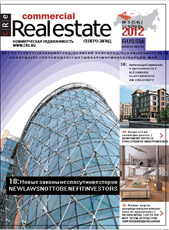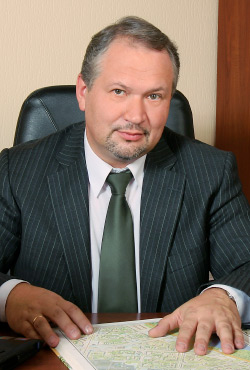Knock-on Effect or the second wave of the crisis

A specter is roving in Europe, the specter of the crisis. We see disintegration processes in United Europe, when the grassroots, i.?e. the PIGS (Portugal, Italy, Greece and Spain) no longer want to tighten their belts, while “the upper crust”, i.?e. Germany and France are no longer able to bear the burden of financing of other economies. One should not be deceived by the fact that Greece still holds on in the Eurozone and Spain is not floundering for the time being. The volatility of the Euro increased and the Euro is devaluating, since the process of flooding weak economies with liquidity has already been launched. The hopes for recovery are now linked with the USA and such Asian giants as China and India.
But the USA has its own problems and it does not care a lot about Europe. On the other hand, India and China which endured under the first strike of the crisis feel excellent for the time being. Yet in India we see a slowdown of the GDP growth, poor investment environment, quite typical of this nation, a high level of corruption, a 20 percent fall of the rupee exchange rate during the past year, instability of the banking system and unsteady social situation. Taken together, these factors scare away international investors, especially since the latter are not particularly welcome in India. We see a similar situation in Russia. China that managed to contain the unrestrained growth of housing prices by introducing an extremely strict legislation regarding the access to mortgage loans is now facing the threat of deflation – that is, the slump in internal demand, pernicious for manufacturers. A low level of domestic consumption (no more than 30?% of GDP) is typical of both China and Russia, which causes the dependence of these nations on external markets.
How can Russia be affected by this geographically remote dynamics? At a given stage everything is relatively calm and so we may hope that this time “this cup will be taken away from us or pass us by.” Among the CEE nations only Poland and Russia boast growing investments into their national economies. Oil prices which are a determining factor for our economy keep at a rather high level. The inertia of economic upturn in 2010 retains in the minds of most of our citizens. However, the words of our national leaders do not inspire much optimism, though they ought to be optimists by virtue of their standing. They cannot say in public: “Everything is very bad; we are sinking to the bottom.” The fall of the industrial manufacture index is already rather tangible. The situation with oil prices is rather interesting. The price of the Russian oil brand Urals is known to be rigidly pegged to prices on the Northern Sea oil brand Brent at the exchange. Yet a limited amount of the Brent oil goes on sale because not much of it is produced. Hence its price can be influenced in the course of sales, i.?e. under a relatively small financial leverage it is possible to reduce the revenues of our nation from oil exports. As a matter of fact, we had a similar situation in late 1990s – early 2000s. Surely the prices of oil futures that are traded at the stock exchange are also influenced by many other factors, but this one also matters.
 Nikolay Vecher
Nikolay VecherTherefore two main factors influencing the real estate investments market can be named: the situation on the world financial markets and world oil prices. Russia is rather deeply integrated into the global economic system and cannot shut off from the world and stake only on domestic consumption. Russia is in need of external investments. A greater part of international institutional investors left Russia after the crisis of 2008 broke out and have not returned yet. Their niche has partly been filled with so-called private equities, but they use altogether different investment strategies: fast return on investments and high yield of the projects is more important to them. Meanwhile they are ready to run higher risks compared to large investment funds. Domestic investors have also stirred to higher activity on the investment market. While for international funds and companies Russia is just one of the opportunities to invest, Russians normally invest only in Russia and to date they have not worked consistently on foreign markets. It is therefore characteristic for Russian investors to assume a higher level of risks, since they know how to work with them.
However, inland investments are contained by a number of factors. The first is insufficient amount of accessible bank financing. Banks suffer from the shortage of liquidity, on the one hand, and they are crippled by a low quality of the projects that claim financing. This low quality is conditioned on such factors as the low legal level of projects, problems with engineering infrastructure on the development land, the lack of assured or proven demand, and backward design and construction technologies. The second reason is a low level of corporate management which is directly tied with the quality of project elaboration. And here, as a well-known proverb goes, “a horse makes a good person better still and a bad person – worse.” In the same way the crisis with its supposedly long recession will make effective landlords and stewards better, making them operate in a tough competitive environment, while bad stewards will go defunct being unable to withstand pressure on the part of their more energetic and quality rivals.
Russia’s accession to WTO will also precipitate this process. Already now builders, who got used to doing poor, expensive and protracted work in "greenhouse" conditions to boot, start talking about measures aimed at protection of the domestic market against nimble foreigners. Instead of closing our market, we should thrust its doors open – this is the only chance for us to learn to do a quality work at reasonable prices and to keep within the deadlines. Only then will we learn to work with investments without seeking to circumvent the notorious Federal Law 214. In other words, one should get ready for the worse, hoping for the better. Winter promises to be long.
Автор: Nikolay Vecher,FRICS,Director GVA Sawyer St.Petersburg,partner
Commercial Real Estate СЕВЕРО-ЗАПАД #9(54), September 2012

